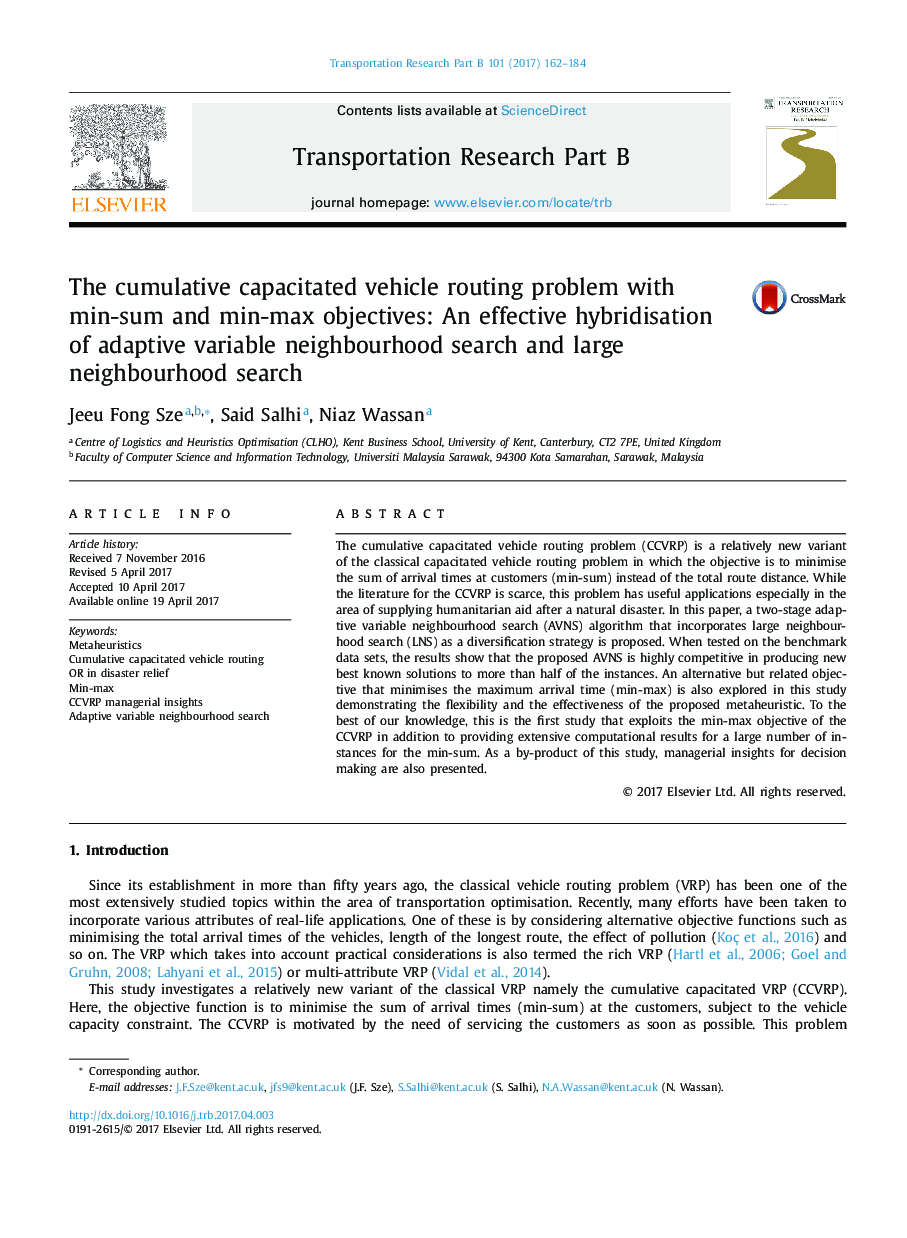| Article ID | Journal | Published Year | Pages | File Type |
|---|---|---|---|---|
| 5127015 | Transportation Research Part B: Methodological | 2017 | 23 Pages |
â¢We propose an effective adaptive VNS for the cumulative capacitated VRP (CCVRP).â¢We report extensive results with many new best solutions.â¢We study an alternative objective, the min-max CCVRP.â¢We present results for the min-max CCVRP for the first time.â¢We provide managerial insights that consider these two objective functions.
The cumulative capacitated vehicle routing problem (CCVRP) is a relatively new variant of the classical capacitated vehicle routing problem in which the objective is to minimise the sum of arrival times at customers (min-sum) instead of the total route distance. While the literature for the CCVRP is scarce, this problem has useful applications especially in the area of supplying humanitarian aid after a natural disaster. In this paper, a two-stage adaptive variable neighbourhood search (AVNS) algorithm that incorporates large neighbourhood search (LNS) as a diversification strategy is proposed. When tested on the benchmark data sets, the results show that the proposed AVNS is highly competitive in producing new best known solutions to more than half of the instances. An alternative but related objective that minimises the maximum arrival time (min-max) is also explored in this study demonstrating the flexibility and the effectiveness of the proposed metaheuristic. To the best of our knowledge, this is the first study that exploits the min-max objective of the CCVRP in addition to providing extensive computational results for a large number of instances for the min-sum. As a by-product of this study, managerial insights for decision making are also presented.
